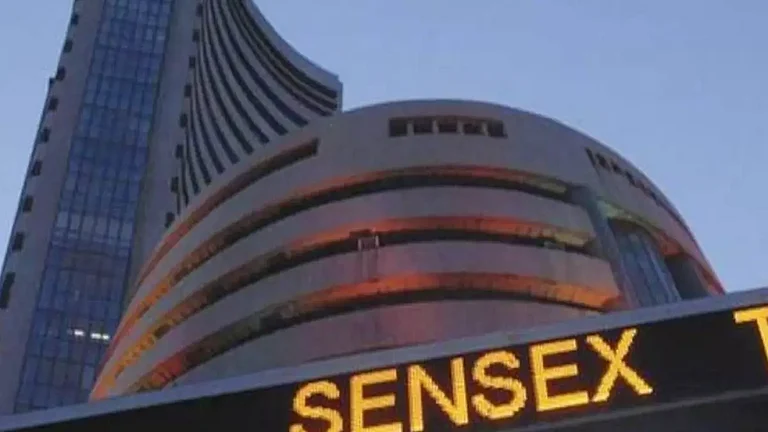
Strong anchor investor turnout; robust global participation
Funds targeted for store expansion, tech, and branding
Analysts divided: long-term opportunity vs stretched pricing
Omnichannel model, automation, and rising tier-2/3 focus
The much-awaited IPO (initial public offering) of eyewear giant Lenskart has opened for public subscription today, October 31. The platform has planned to raise ₹7,278 crore, including ₹2,150 crore through a fresh issue, at a valuation of around ₹70,000 crore. The public issue will test investor appetite for one of India’s most popular new-age consumer tech stories.
While Dalal Street remains divided over its grey market premium, market analysts are betting on 20-30% listing gains. The omnichannel eyewear retailer is selling its shares in the range of ₹382-402 apiece. Investors can bid for a minimum of 37 equity shares and its multiples thereafter. The issue will close for bidding on November 4.
On day 1, the eyewear player’s ₹7,278-crore offering saw a muted start, with overall subscription at around 9% by 11 am. Investors had bid for nearly 88.55 lakh shares against the 9.98 crore shares on offer at this stage, as per NSE data. Retail participation was stronger, with 37% of the quota taken up, while non-institutional investors subscribed about 8% of their portion.
Founded in 2008 by Peyush Bansal, Lenskart is a technology-driven eyewear company with integrated operations across design, manufacturing, branding, and retailing of eyewear products. The company primarily offers prescription eyeglasses, sunglasses, contact lenses, and eyewear accessories.
The company will be utilising ₹272.62 crore for capital expenditure towards set-up of new CoCo stores in India, ₹591.44 crore for expenditure for lease/rent/license agreements related payments for CoCo stores, ₹213.37 crore for investing in technology and cloud infrastructure, and ₹320 crore for brand marketing and business promotion expenses. Residual proceeds will be used for general corporate purposes.
The company has secured ₹3,268.36 crore from 147 anchor investors ahead of its IPO, allotting 8.13 crore shares at ₹402 each. The anchor list features marquee global names including the Government of Singapore, T Rowe Price, BlackRock, Goldman Sachs, Fidelity, Wellington Management, New World Fund, Nomura, Steadview Capital, Norway’s Government Pension Fund Global, JP Morgan, Amundi, and Allspring Global Investments, among others.
In the public offering, 75% of the shares are earmarked for qualified institutional buyers, while non-institutional investors will receive 15% of the allocation. Retail investors have access to the remaining 10%. Based on the issue price, Lenskart is poised for a market capitalisation close to ₹70,000 crore.
The IPO is being led by Kotak Mahindra Capital, Morgan Stanley India, Avendus Capital, Citigroup Global Markets India, Axis Capital, and Intensive Fiscal Services, with MUFG overseeing registrar responsibilities.
How Leading Brokerages View Lenskart IPO
Market analysts have mixed opinions about Lenskart’s public debut, with brokerages acknowledging its strong business model and market opportunity but flagging concerns around its steep valuation. While some see the eyewear player as a long-term compounding story tapping into an underpenetrated category, others urge caution, citing premium pricing and one-off gains in recent earnings.
Choice Broking has assigned a ‘Subscribe for long-term’ rating to the Lenskart IPO. “While the company has posted steady topline growth, profitability remains weak, with a positive PAT mainly driven by other income and lower expenses. LSL holds a 4–6% market share in the prescription eyewear segment, dominated by unorganised players,” the brokerage firm said.
“Its average revenue per store has improved from ₹1.9 crore to ₹2.4 crore, supported by operational efficiencies and AI-driven technologies. Billionaire investor Radhakishan Damani has invested around ₹90 crore in the company during its pre-IPO funding round. About 40% of its revenue comes from international markets,” it added.
On the other hand, Marwadi Financial Services has asked investors to “subscribe with caution”. "We assign 'subscribe with caution rating' to this IPO as Lenskart is the largest seller of prescription eyeglasses in terms of volumes sold in India in FY25," said Marwadi Financial Services. "However, the IPO is richly priced and it will have to continue growing its business at a high growth rate in order to justify its valuation which keeps us cautious from a long-term perspective,” it said.
Swastika Investmart has taken a “neutral stance” on Lenskart’s IPO, flagging concerns around its steep valuation. The brokerage noted that the issue is priced at a P/E of over 200x and an EV/sales multiple of 10x, leaving little room for error. It also highlighted that Lenskart’s FY25 profit of ₹297 crore was largely driven by a one-time, non-cash accounting gain, suggesting underlying earnings may not fully reflect the valuation being sought.
That said, Swastika acknowledged the company’s long-term potential, given the vast and under-penetrated eyewear market in India, which offers significant expansion headroom. The presence of seasoned investor Radhakishan Damani as a backer also boosts market confidence. While Lenskart has strong fundamentals and growth drivers, Swastika believes the stretched valuation justifies a ‘neutral’ rating on the issue.
However, Arihant Capital Markets has also given it a “subscribe for long term” rating. It said that the company aims to continue leveraging its centralised supply chain and automation to maintain cost efficiency while scaling both in India and overseas markets such as Southeast Asia, Japan, and the Middle East. Store-level metrics are healthy at 81% of CoCo stores opened in FY23–24 achieved payback within 10 months, said Arihant Capital Markets.
“With rising demand for vision correction and growing shift toward organized eyewear retail, it plans to deepen penetration in Tier 2 and Tier 3 cities and further strengthen its global reach through the Owndays brand. OCF jumped 13 times in 2 years to ₹1,231 crore, and RoCE improved to 13.8% in FY25. We recommend a 'subscribe for long -term' rating for this issue," it said.
Can Momentum Sustain Ahead?
The global eyewear market is valued at ₹15,207 billion in FY25, is projected to grow at a CAGR of 4% by FY30. Indian eyewear market is expected to grow at a CAGR of 13% by 2030. Prescription eyeglasses have the highest contribution with around 70% of the total market by value, followed by contact lenses and sunglasses.
Asia contributes 29-37% of the global eyewear market as of FY25, and emerging markets such as India and Southeast Asia are projected to be the fastest growing markets, with their organised eyewear markets projected to grow at CAGR of 19% and 10-14% respectively between FY25-30P.
India and Southeast Asia contribute to approximately 30% of the global population affected by refractive errors as of FY25, with refractive error incidences of around 53% and 65% of the total population in these regions.
Lenskart enjoys a strong market competitiveness in the Indian eyewear market by leveraging innovation, technology and strategic expansion while building a global footprint. Its Omnichannel strategy along with centralised manufacturing suggests a resilient business model and bodes well to remain cost competitive in the highly fragmented market.
The company is able to grow faster than the industry scaling up its operations through product innovations, entering newer markets, acquisitions, and market share gains.
While the Indian market looks to crown its next homegrown consumer champion, Lenskart is positioning itself as a category creator. Yet with a lofty valuation of around ₹70,000 crore, the question for investors is clear: are they backing the country’s next Make-in-India success story or stepping into a market darling whose upside is already factored in?


































